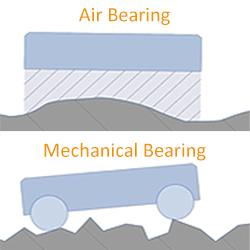Carnegie Mellon College of Engineering Marks the 30th Birthday of Self-Driving Car Technology
In the next decade, self-driving cars will revolutionize transportation worldwide.
PITTSBURGH--The College of Engineering at Carnegie Mellon University (CMU) will celebrate 30 years of self-driving car technology on November 20.
Carnegie Mellon is the birthplace of self-driving or autonomous vehicle (AV) technology. In the next decade, self-driving cars will revolutionize transportation worldwide.
"The evolution of AV technology at Carnegie Mellon is a remarkable success story that epitomizes how innovation advances when engineers, computer scientists and robotics researchers collaborate," says Farnam Jahanian, the vice president for research at Carnegie Mellon. To date, CMU has filed more than 140 invention disclosures for AV technologies.
Carnegie Mellons 14th self-driving car, a 2011 Cadillac SRX, takes ramps, merges onto highways and cruises at 70 mph. The test vehicle looks like a production model SRX because its sensors are integrated into the vehicles body. The sophistication of this vehicle sharply underscores how far AV technology has progressed since 1984, when CMUs first autonomous vehicle, the Terregator, rolled along at the whopping speed of several centimeters per second.
"At a time when thinking machines were the stuff of fiction, Terregator took autonomous driving from fantasy to fact. CMU had developed the underpinnings of autonomous driving and cast that into the world," says William L. "Red" Whittaker, the Fredkin Professor of Robotics at Carnegie Mellon. Fast forward 30 years, in June 2014, Congress members rode through Washington, D.C., in the self-driving Cadillac.
As self-driving technologies mature, they are gradually assimilated into auto production. Adaptive cruise control and parking assist are commercially available now. In the 2020s, cars will have traffic jam assistance and virtual valet, a feature that enables cars to park themselves via a smartphone app.
"Features of automated self-driving cars will appear incrementally and organically, with vehicles eventually driving themselves. This will make the cars affordable and encourage public adoption," says Raj Rajkumar, a professor of electrical and computer engineering and the co-director of the GM Collaborative Research Lab at Carnegie Mellon.
"In the not-so-distant future, self-driving cars will provide society with many benefits pertaining to safety and quality of life," states Rajkumar, who also directs the Center for Technologies for Safe and Efficient Transportation (T-SET), which is one of five U.S. Department of Transportation National University Transportation Centers.
To ensure that self-driving cars become reliable, CMU is working to accurately analyze the data that sensors collect about driving environments. Algorithms process this information, which is used to control the vehicle, so it is imperative that environmental data is interpreted correctly.
"Through its desire and capacity for interdisciplinary research, the Carnegie Mellon University College of Engineering is well positioned to address these challenges. By working on complex real-world problems, we provide students with exciting and meaningful educational and research experiences," says James H. Garrett, the dean of the College of Engineering.
A number of engineers who work on AV technology for automakers, Google and other universities got their start at Carnegie Mellon. Beginning in 1984, CMUs Robotics Institute ran the NavLab project, which yielded 11 generations of semi- and fully autonomous vehicles. Another research wave, from 2004 to 2007, focused on the Defense Advanced Research Projects Agency (DARPA) Grand Challenges. CMU won the 2007 "DARPA Urban Challenge" with Boss, a Chevy Tahoe that traveled a 55-mile course autonomously.
"The college has developed a tremendous body of work during the past 30 years in the area of self-driving technology, and we will continue our efforts in shaping the future of transportation," says Garrett.
About Carnegie Mellon University: Carnegie Mellon (www.cmu.edu) is a private, internationally ranked university with programs in areas ranging from science, technology and business to public policy, the humanities and the arts. More than 12,000 students in the universitys seven schools and colleges benefit from a small faculty-to-student ratio and an education characterized by its focus on creating and implementing solutions for real world problems, interdisciplinary collaboration and innovation. A global university, Carnegie Mellons campus in the United States is in Pittsburgh, Pa. It has campuses in Californias Silicon Valley, Qatar, and programs in Africa, Asia, Australia, Europe and Mexico.
Featured Product

PI USA - Hexapods for 6-Axis Precision Automation
PI Hexapods simplify multi-axis alignment / positioning with a programmable pivot point, tool/work coordinate systems, virtual programming software.
